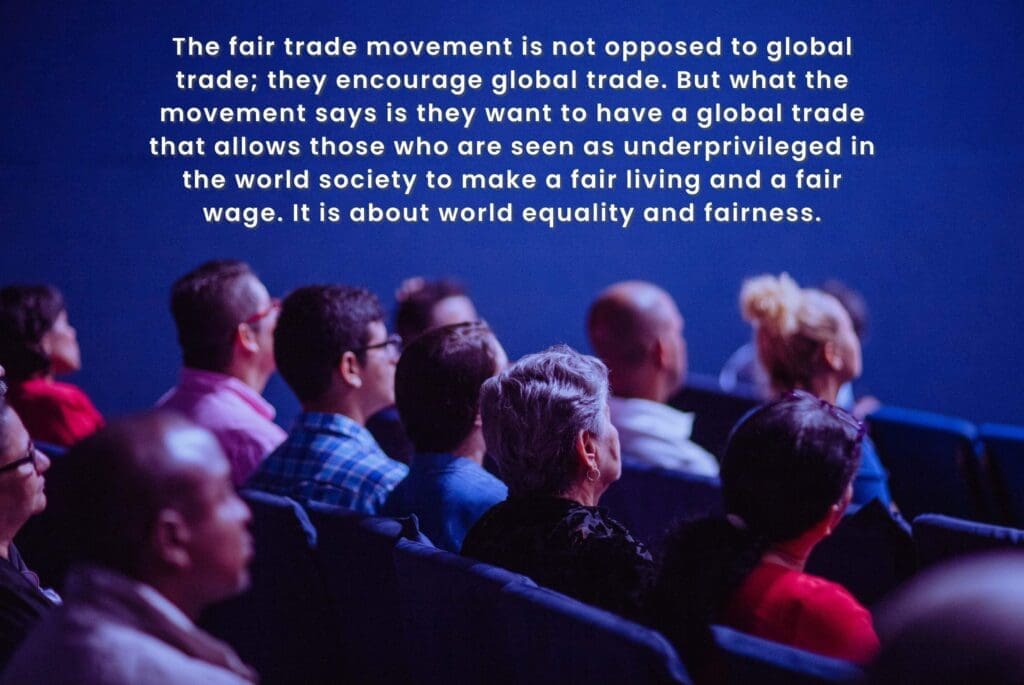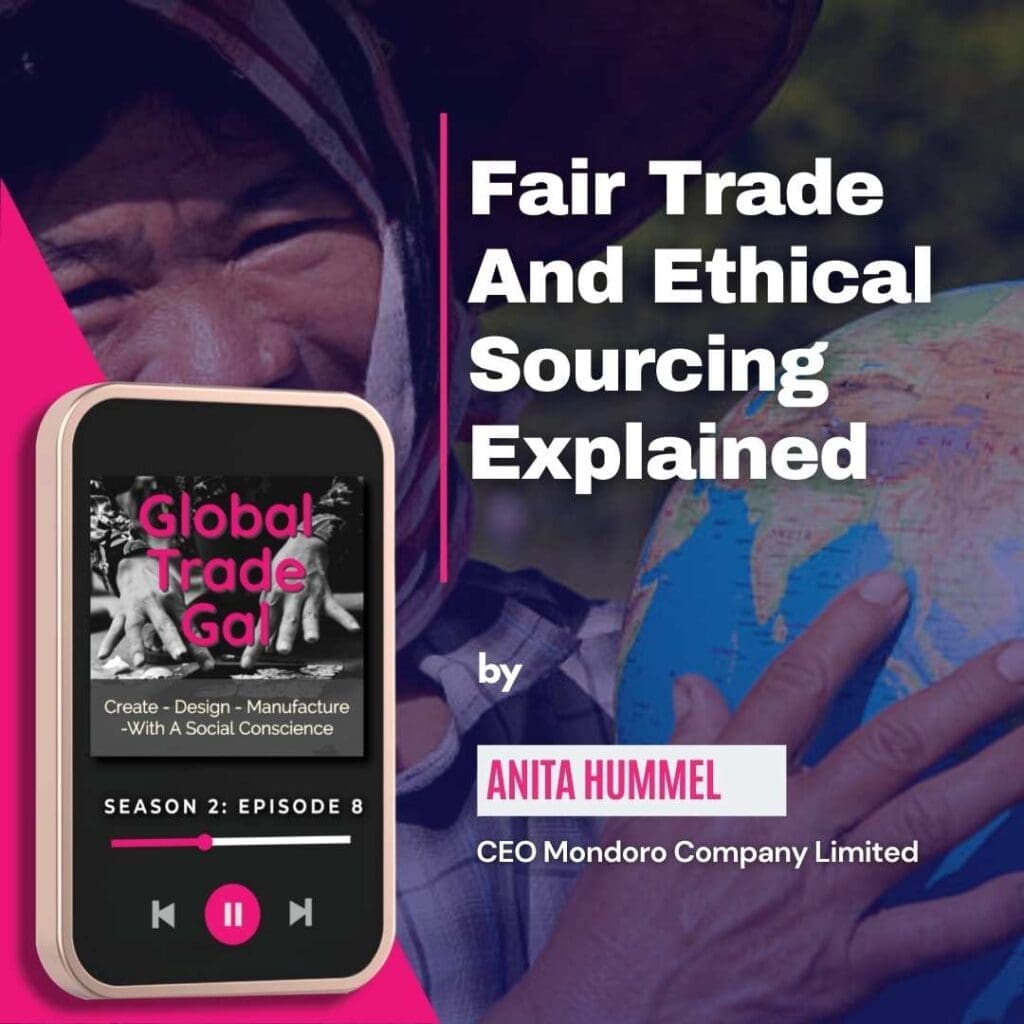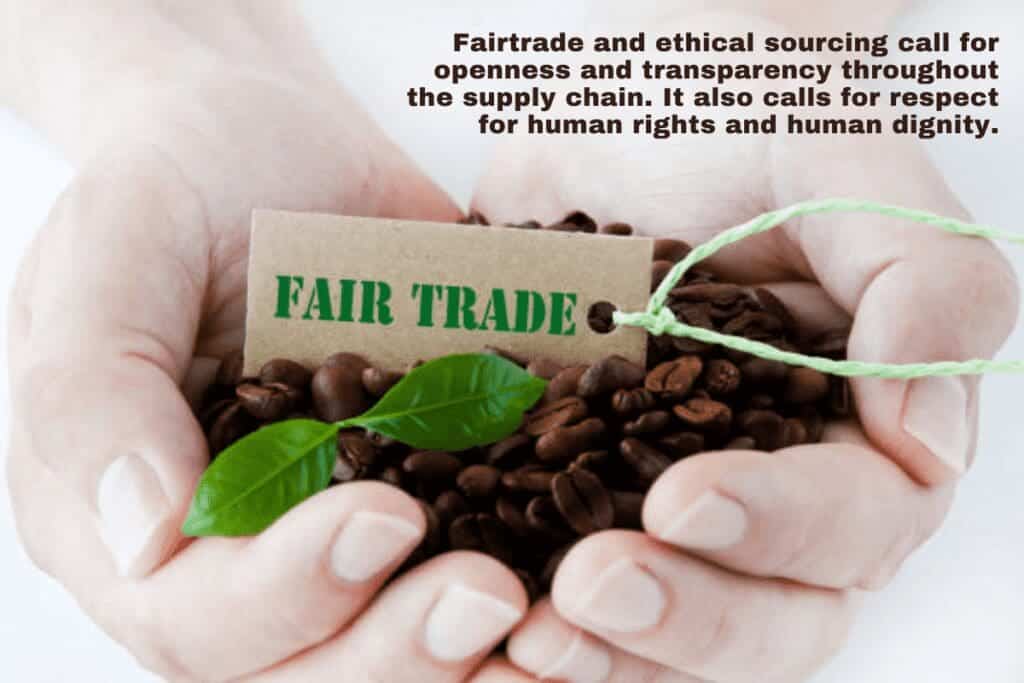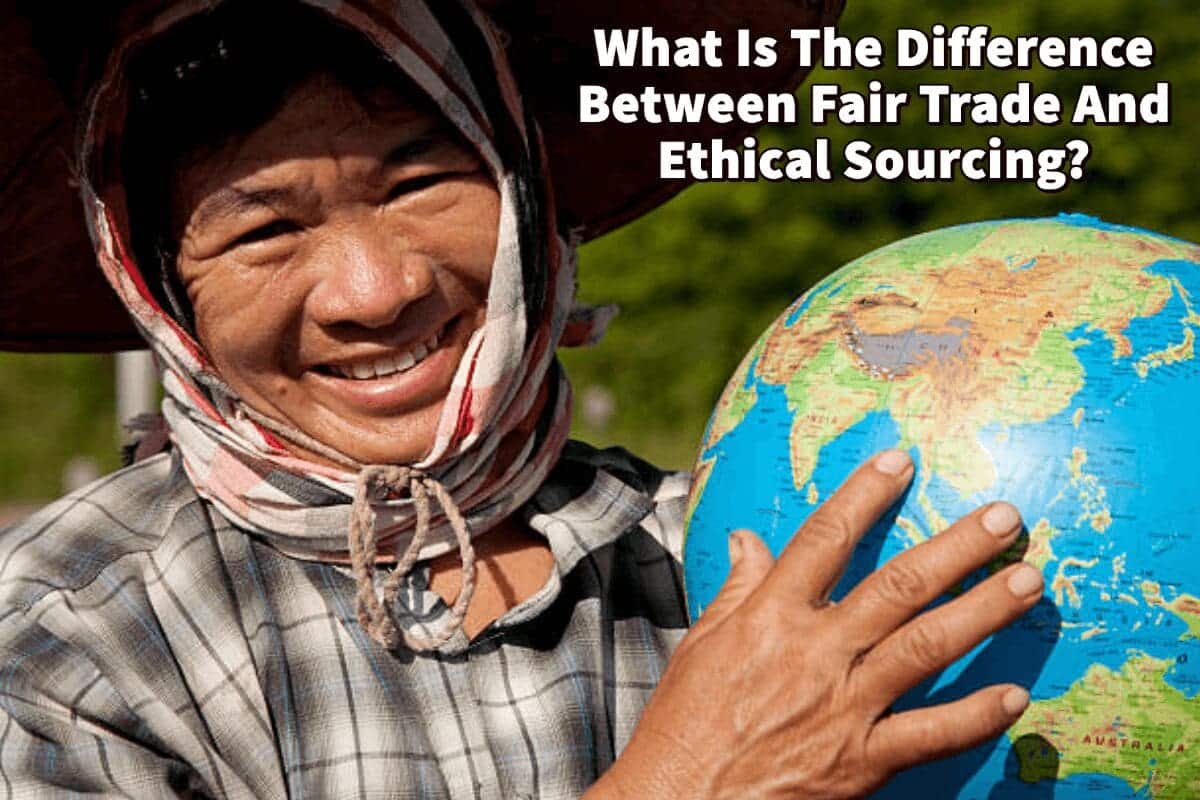You may hear fair trade or ethical sourcing when purchasing products from overseas suppliers. Today, ethical sourcing and fair trade continue to be words we see on many different products sold in the United States and worldwide.
Fair Trade is an organization that includes partnerships with marginalized and disadvantaged groups worldwide. The purpose of FairTrade is to help these groups to be able to have a more level playing field and ensure that they can earn a fair wage for the products they are offering. Ethical sourcing ensures that your global supply chain considers all your products’ global, social, and environmental impacts.
Table of Contents
- What Is Fair Trade?
- What is Ethical Sourcing?
- Fair Trade and Ethical Sourcing Differences Explained
- Related Content
What Is Fair Trade?
Fairtrade started in the 1980s with the purpose of helping protect farmers in developing countries from the consequences of what was then seen as the meager international prices of their products, such as tea, coffee, and cocoa. It became a phenomenal international and intercultural movement that aimed to create a mutually beneficial relationship between laborers and consumers.
In other words, Fair Trade is all about equality. It is about ensuring that labor in a developing or Third World country receives a fair price for the products they are selling.
Fair Trade is a movement based upon bringing awareness to what was seen as exploited conditions that many people are forced to work under internationally.
It is also about trying to highlight the actual cost of the goods so that when we buy something, we do not just think about the price tag but consider all the potential harm that could happen if a product is purchased at a price that is too low for an individual in another country to earn a fair wage or have a sustainable way of life.

The Fair Trade movement is not opposed to global trade; it encourages international trade. But the movement says they want to have global trade that allows the underprivileged to make a fair living and a fair wage. It is about world equality and fairness.
What is Ethical Sourcing?
Ethical sourcing came after Fair Trade in the 1990s. Around this time, the media began to expose many harsh conditions of workers in Third World countries and the conditions they were forced to live and work in to produce clothes, shoes, toys, and other products for the developed world.
Ethical sourcing is best described as ensuring that every product in their global supply chain is done with sustainability and responsibility in mind. The commitment also includes social responsibility such as labor, safety, and all environmental issues.
It is similar to fair trade in that ethical sourcing ensures that all laborers within a global supply chain earn a fair wage for their labor. Ethical sourcing also looks at safety, working conditions, and all environmental health issues.
Ethical sourcing also ensures that companies or organizations follow and adhere to codes of conduct to provide workers’ rights are respected, including all laborers throughout the supply chain.

Listen To Our Podcast Fair Trade And Ethical Sourcing Explained below or by clicking here.
Fair Trade and Ethical Sourcing Differences Explained
Fair Trade and Ethical Sourcing can seem similar, but some differences exist. Here are some of the differences explained:
Target Groups –
Ethical Sourcing refers to a company’s practices throughout the global supply chain. Fair Trade seeks to work in partnership with marginalized or disadvantaged groups.
Focus –
Ethical Sourcing will look at the entire global supply chain. In other words, a company with Ethical Sourcing will look at the social and environmental issues throughout its global supply chain.
Fairtrade organizations specifically focus on the marginalized and disadvantaged to help those groups have a more level playing field in the international marketplace.
Bargaining Power –
Fairtrade is about helping underdeveloped and disadvantaged groups to have more bargaining power, sustain their livelihoods, and find new markets. Ethical Sourcing does not look at the bargaining power but the social and environmental responsibility throughout the supply chain.
Organization –
Ethical Sourcing and ethical trade movement is not organized or centralized. There is no certification to verify that a company with ethical products has ethical sourcing. The Fair Trade movement is collected, and a company with a Fair Trade certification must go through the Fair Trade process.
Product Labeling –
A company with a Fair Trade certification can place the term Fair Trade onto their product and marketing materials. Also, companies that can verify their products are ethically sourced can say that they were ethically sourced or an ethical product.
Human Rights –
Fair Trade and ethically sourced products will look at the human rights aspects of the product. The significant difference may be that someone with a Fair Trade certification usually needs to verify that there are no human rights abuses with the Fair Trade organization.
When companies say they have ethically sourced the product, they do not need to verify this with an organization.
Environmental Issues –
Fair Trade and Ethical Sourcing look at the environmental issues. But the environmental aspects are far more ingrained into ethical sourcing than Fair Trade. Ethical sourcing looks at all aspects of the global supply chain, including a social and environmental footprint and impact.
To be part of a Fair Trade organization, a company must also show ethical sourcing and an ethical business. However ethical sourcing does not need to show that it has Fair Trade principles in place.

Fairtrade and ethical sourcing call for openness and transparency throughout the supply chain. It also calls for respect for human rights and human dignity.
You might ask yourself if it is vital for you and your company, corporation, or brand to care about ethical sourcing or fair trade. Recent research and studies have shown that ethical sourcing and transparency matter to consumers, especially Generation X and millennials.
Fair Trade and ethical sourcing are essential aspects of the global supply chain and an essential part of any company purchasing products from overseas. If you want to see how Mondoro can help you manufacture ethically sourced home decor and home furnishing products – we would love to talk to you to see how we can help you.
Find out more about how Mondoro can help you create, develop, and manufacture excellent home decor and home furniture products – don’t hesitate to contact me, Anita.
Check my email by clicking here, or become a part of our community and join our newsletter by clicking here.
Mondoro gives out a FREE Lookbook to anyone interested. You can receive a copy of our latest Lookbook by clicking here.
Listen to our Podcast called Global Trade Gal. You can find it on all major podcast platforms. Try out to listen to one of our podcasts by clicking here.
Subscribe to our Mondoro Company Limited YouTube Channel filled with great videos and information by clicking here.
Related Content
What Are The Different Types Of Ethical Sourcing?
Ethical sourcing encompasses the environment, labor protection, safety standards, and social responsibility as part of the global supply chain. For a company to say they use ethical sourcing or have an ethical sourcing policy, they need to include environmental and social responsibility in their global sourcing supply chain policy.
You can discover more by reading What Are The Different Types Of Ethical Sourcing? by clicking here.
Ethical Sourcing And Why It Is Important
Ethical sourcing is about a company, brand, corporation, or individual ensuring that their products are obtained through a sustainable and responsible method. A recently Open Text Survey showed that 83% of all consumers globally consider ethical sourcing an essential aspect of their buying decisions.
You can discover more by reading Ethical Sourcing And Why It Is Important by clicking here.

